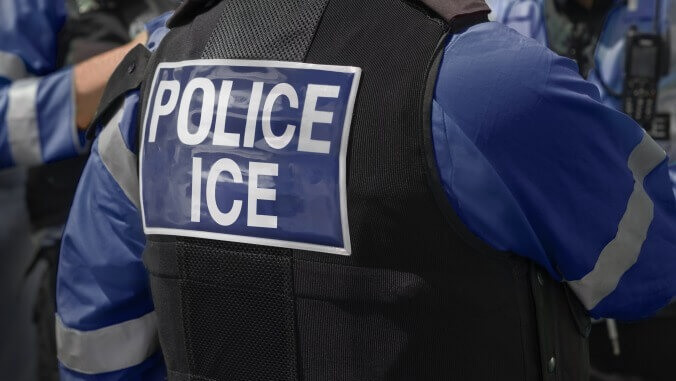Pregnant ICE Detainees Have Been Shackled, Forced Into Solitary Confinement
The ACLU and other organizations sent a letter to ICE, demanding the release of pregnant detainees.
Photo: Getty Images Politics
It’s no secret, slash surprise, that ICE facilities are bad. Cells are overcrowded, the food’s inedible (that is, if it’s in supply), and medical care is substandard. So on Wednesday, the ACLU and other immigrant rights groups sent a letter to the agency demanding that they release their pregnant detainees.
“ICE’s detention of pregnant individuals has led to serious harm,” the ACLU, ACLU Louisiana Chapter, National Immigration Project, Robert F. Kennedy Human Rights, Sanctuary of the South, and Sanctuary Now Abolition write, citing several cases of mistreatment from detainees in Basile, Louisiana, and Lumpkin, Georgia. “These women reported gravely troubling experiences of shackling, use of restraints, and solitary confinement.”
The women’s stories, which the ACLU collected from over a dozen interviews after Trump re-assumed office, paint a grim picture. One detainee says she suffered “severe infection” after miscarrying. Another said that because of the stress and mistreatment, she developed eclampsia and had a difficult and painful delivery of her baby in August, and continues to suffer from postpartum depression. That same woman said she witnessed a fellow detainee miscarry in their housing unit bathroom.
In another example, a woman says she was shackled during her miscarriage. She’d been detained before she knew she was pregnant, but when she started exhibiting symptoms like vomiting and abdominal pain, she requested to see a doctor. She was denied for weeks before finally being seen by medical staff, who confirmed she was two months pregnant. But less than two weeks later, she experienced heavy vaginal bleeding and cramping in the middle of the night. Despite requesting immediate attention, she wasn’t seen by a medical worker until a day later, who put her in a small room where she bled for hours without food, water, or pain medication. She was transported to a hospital with her arms and legs restrained, where she was told she had miscarried.
-

-

-

-

-

-

-

-

-

-

-

-

-

-

-

-

-

-

-

-

-

-

-

-

-

-

-

-

-

-

-

-

-

-

-

-

-

-

-

-








































